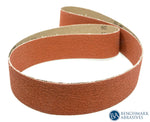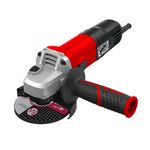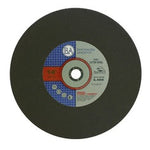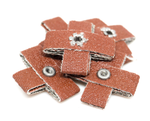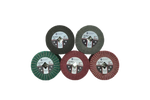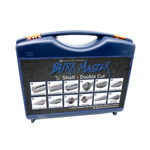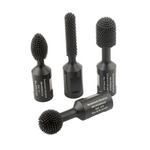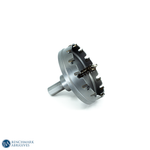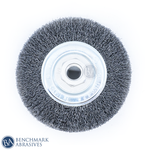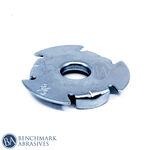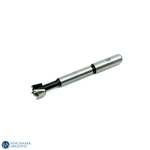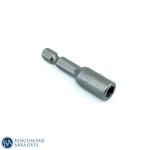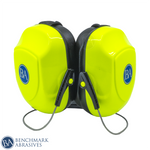Cutting Tools Demystified: A Deep Dive Into Drill Bits and Their Uses

Simple yet essential tools, drill bits are used in a wide range of sectors, including construction, metallurgy, woodworking, and more. They are made of various materials, sizes, and shapes, each intended for a particular purpose. Comprehending drill bits is crucial to obtaining accurate and practical drilling tasks. In this blog, we will go over the primary varieties of drill bits, their characteristics, and their applications.
WHICH DRILL BIT SIZE IS BEST?
The purpose of a drill bit is to create a hole in a substance. They are available in various sizes and forms to accommodate a variety of uses, and some are better suited to cutting particular materials than others. The material you're cutting, the size and depth of the hole, and the finish you want to achieve should all be taken into consideration when selecting a drill bit. While some drill bits are made to make holes that are exact and accurate, others are made to create rough holes.
Drill bits exist in a variety of forms, but they all generally have three standard dimensions: the diameter, the working length, and the overall length.
- The diameter of a drill bit is its size or the hole it will drill.
- The depth of the hole that it can drill is known as its working length.
- The drill bit's complete length, including the shank, is its overall length.
Once you've determined the desired drill bit size, you can select one made specifically for the material you're drilling with.
WHICH DRILL BIT IS BEST FOR WOOD?
One of the most frequent uses you'll encounter is undoubtedly drilling through wood. As will be detailed below, there are several varieties of drill bits specifically made for working with wood, each serving a distinct function.
AUGER BITS
Auger bits are merely used in ordinary timber applications to drill bigger holes in wood. They have a sharp point on the tip that helps with precision drilling, and they include a spiral drill bit head that is intended to draw the bit into the wood while drilling so that you don't have to use excessive pressure. They ought to be used more slowly than regular drill bits. The auger drill bits drill uniformly sized, clean, deep holes that are uniform throughout. They don't clog as quickly as other drill bits because of their wide flute shape.
FLAT WOOD/SPADE BITS
Also called spade bits, flat wood drill bits are ideal for drilling big, rough holes in wood. Large sizes make them perfect for drilling holes for cables, wires, and other objects; nevertheless, they leave a coarser finish than other techniques, and if they are driven straight through a piece of wood, they may shatter around the entrance and exit of a hole.
TWIST DRILL BITS FOR WOOD
Twist wood drill bits: These are standard wood drill bits made to drill small holes. They come in an extensive range of sizes and offer a tidy, clean finish. For extended life and durability, High-Speed Steel (HSS) is frequently used in their construction. There are also twist drill bits for plastic, metal, and other materials.
WHICH DRILL BIT IS BEST FOR METAL?
The best drill bits for metalworking applications are standard HSS drill bits.
HSS DRILL BITS: WHAT ARE THEY?
High-speed steel is referred to as HSS. These drill bits work well on metal and tough wood. Compared to conventional drill bits, they may be utilized at more incredible speeds because they are more resilient, long-lasting, and heat-resistant. Please use them for efficient and speedy drilling into materials.
WHICH DRILL BIT IS BEST FOR MASONRY?
You will undoubtedly require a hard-lasting drill bit to drill into dense materials like brick. The best drill bits for drilling concrete, limestone, and brick are masonry drill bits. They are often composed of tungsten carbide for a long lifespan, making them strong and resilient. To avoid overheating, we advise drilling masonry at a slower pace. Masonry drill bits come in a range of sizes and designs, much like conventional drill bits.
Although multipurpose drill bits are equally capable of drilling into masonry, we advise purchasing an application-specific one if you plan to use them frequently. It's also important to remember that a drill with a hammer motion is required in order to drill through masonry.
WHICH DRILL BIT IS BEST FOR TILE?
Tile drill bits are unique in that they are designed to drill into tiles with ease and minimize the likelihood of chips and cracks. Standard drill bits, or even masonry drill bits, are insufficient since they aren't powerful enough to break through tiles. The majority of tile drill bits have either a diamond or a carbide tip. For use on tile surfaces, these materials are sturdy and incredibly hard-wearing.
A new (or almost new) drill bit is always the better choice when drilling tiles since it is more effective and less prone to causing surface damage. As previously said, tiles are durable; therefore, drilling through them might be challenging. To keep the drill bit from wandering, we advise marking the desired drilling location with masking tape. Then, start drilling slowly until the top layer of glaze is penetrated.
ADDITIONAL DRILL BIT TYPES
Additionally, multipurpose drill bits are available, and they perform just as advertised. Our favorite drill bits are the multipurpose ones. You won't need to buy multiple drill bits for different tasks because they are appropriate for daily use and can drill through a range of materials. Drill bits with multiple uses may easily penetrate masonry, metal, plastic, and wood.
COUNTERSINKS DRILL BITS
To make countersunk holes that flat-headed screws will sit flush against, utilize countersink drill bits. The countersink bit creates a hole so that the screw head sits parallel to or slightly below the surface of the material being worked on. Woodworking applications benefit significantly from the use of countersunk holes.
DRILL BITS WITH DIAMOND CORES
Diamond core drill bits have a resemblance to hole saws, except that their construction incorporates diamonds for superior cutting performance and durability. Because of their well-made design, they are used to drill big holes in hard materials with ease.

